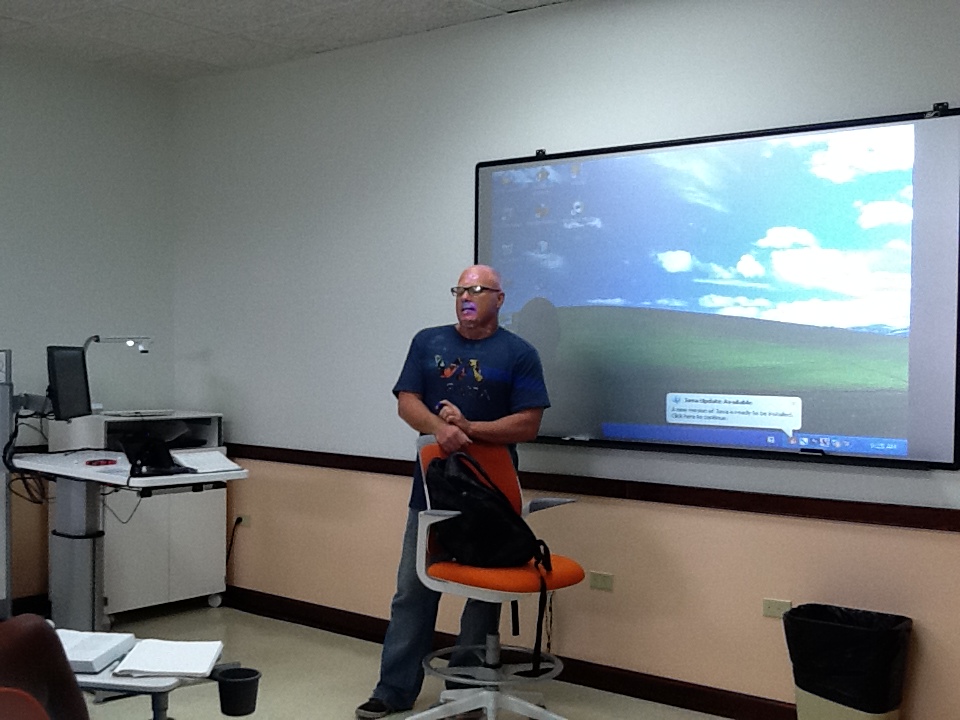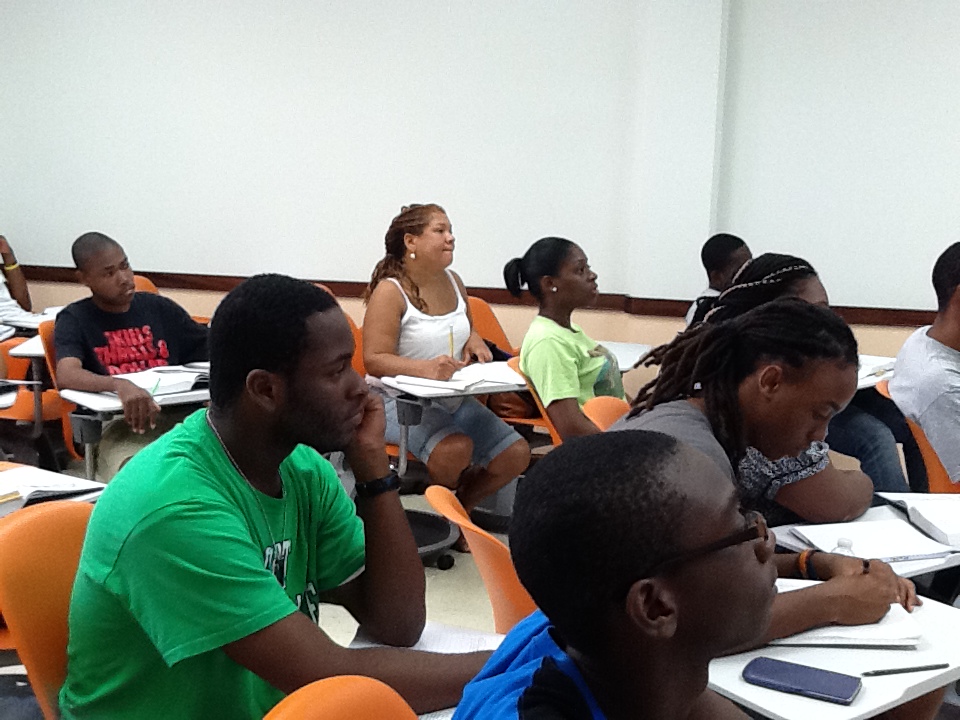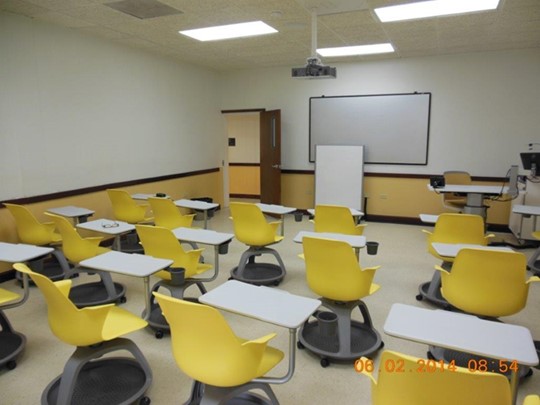

Research
- Research Activities
- Agricultural Experiment Station (AES)
- Caribbean Exploratory Research Center (CERC)
- Alliance for Responsive Investment in Children’s Health: Virgin Islands (A RICH VI)
- Caribbean Green Technology Center (CGTC)
- Center for Marine & Environmental Studies (CMES)
- Eastern Caribbean Center (ECC)
- Emerging Caribbean Scientists (ECS)
- Etelman Observatory
- Institutional Research
- Title III and Sponsored Programs
- Research & Public Service (RPS)
- Research & Technology Park (RTPark)
- Research Day
- VI-EPSCoR
- Water Resources Research Institute (WRRI)
Overview
 |
 |
 |
Since 1968, the U.S. Department of Education (USED), through its Title III, Part B-Strengthening Historically Black Colleges and Universities (HBCUs) program (and the program's predecessor), has partnered with the University of the Virgin Islands (UVI) to implement several projects that have served to strengthen the institution. Title III, Part B grants are awarded to HBCUs according to a formula, and provide financial assistance to these institutions to assist in establishing or strengthening their physical plants, financial management, academic resources, and endowments.
Administered by USED's Office of Institutional Service, the Title III, Part B grant program provides over $324,000,000 to HBCUs across the United States. The University of the Virgin Islands is the only HBCU outside of the contiguous 48 states.
The Student Aid and Fiscal Responsibility Act (SAFRA) grant program was approved in 2010 as a temporary supplemental funding source to provide additional aid to Minority Serving Institutions. This legislation expired in 2019 and was replaced by the Fostering Undergraduate Talent by Unlocking Resources for Education (FUTURE) Act, which made the mandatory funding originally established by SAFRA a permanent funding source for HBCUs and MSIs under Part F of Title III of the Higher Education Act of 1965, as amended.
Title III Part B and Part F grant support are each provided in five-year cycles. Prior to the commencement of each cycle, each eligible institution is required to submit a Comprehensive Development Program to USED, describing the activities that it proposes to support with Part B or Part F funds. After review and approval, funding is provided on an annual schedule to each institution.
Legislatively Allowable Activities (LAAs) for which Title III, Part B funds may be used include:
- purchase, rental, or lease of scientific or laboratory equipment for educational purposes;
- construction, maintenance, renovation, and improvement in classroom, library, laboratory, and other instructional facilities;
- support of faculty exchanges, faculty development and faculty fellowships to assist in attaining advanced degrees;
- academic instruction in disciplines in which Black Americans are underrepresented;
- purchase of library books, periodicals, microfilm, and other educational materials;
- tutoring, counseling, and student service programs designed to improve academic success;
- strengthening funds and administrative management;
- joint use of facilities, such as laboratories and libraries, with partner institutions;
- establishing or improving a development office to strengthen or improve contributions from alumni and the private sector;
- establishing or enhancing a program of teacher education designed to qualify students to teach in a public elementary or secondary school, including preparation for teacher certification;
- establishing community outreach programs which will encourage elementary and secondary students to develop the academic skills and the interest to pursue postsecondary education;
- acquisition of real property in connection with the construction, renovation, or addition to or improvement of campus facilities;
- education or financial information designed to improve the financial literacy and economic literacy of students or the students' families, especially with regard to student indebtedness and student assistance programs under title IV;
- services necessary for the implementation of projects or activities that are described in the grant application and that are approved, in advance, by the Secretary of the Department of Education, except that not more than two percent of the grant amount may be used for this purpose; and
- other activities that carry out the purposes of the Title III legislation and are approved by the Secretary of the Department of Education.
Part F grant funds may be used for LAAs 1, 2, 4, 5, and 10. These funds may also be utilized for "other activities, consistent with the institution's comprehensive plan and designed to increase the institution's capacity to prepare students for careers in the physical or natural sciences, mathematics, computer science or information technology or sciences, engineering, language instruction in the less-commonly taught languages or international affairs, or nursing or allied health professions".